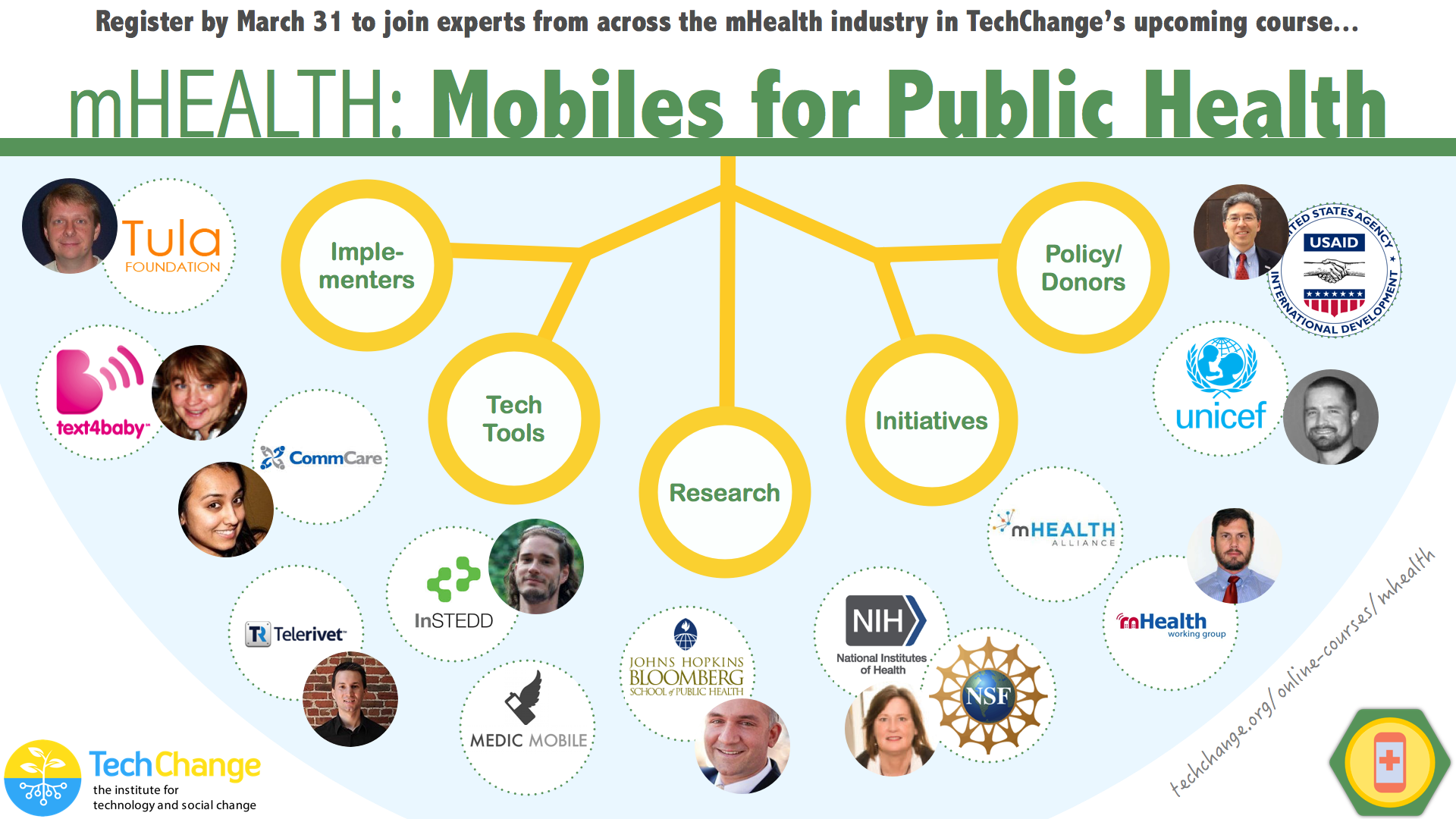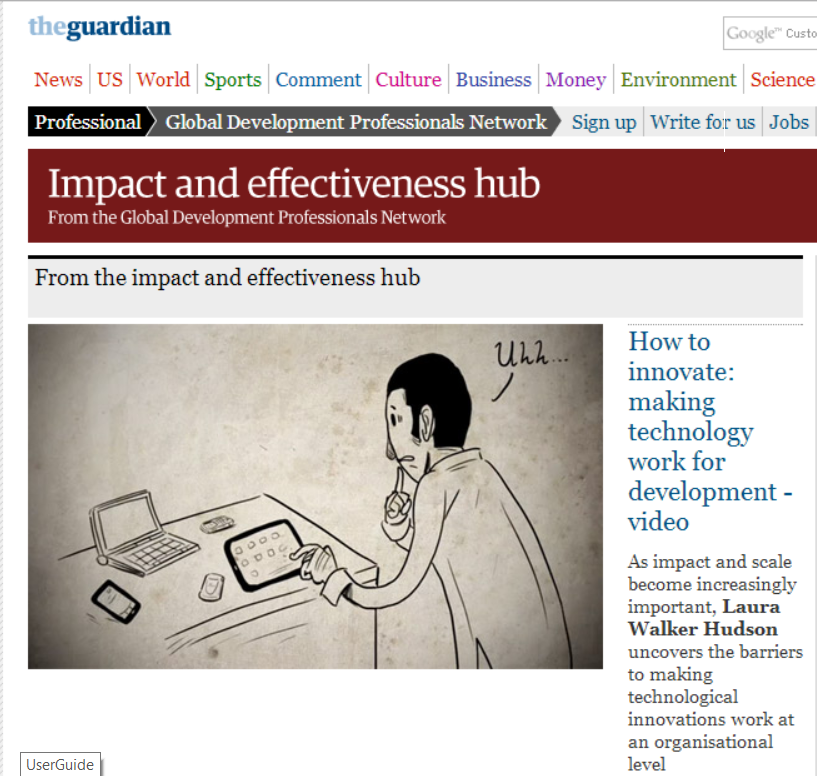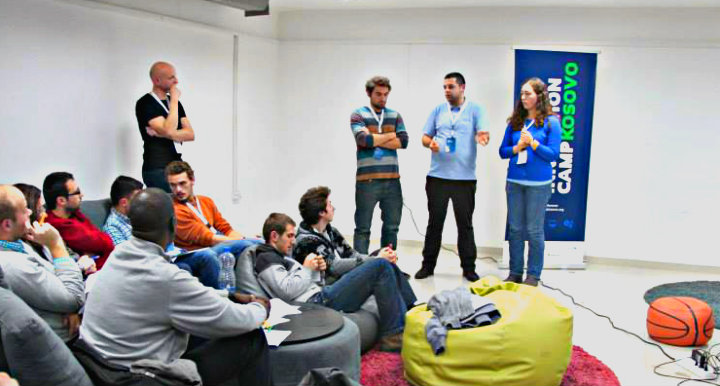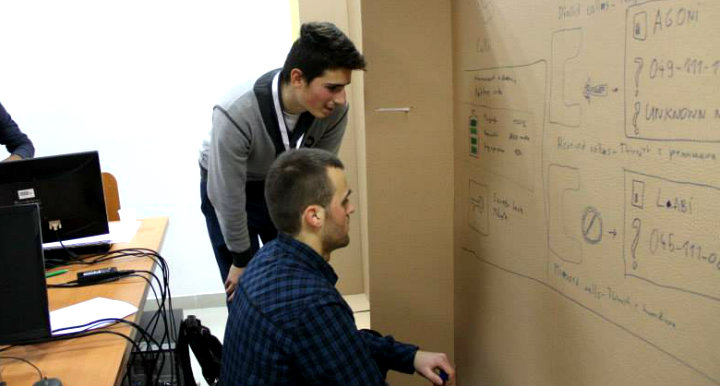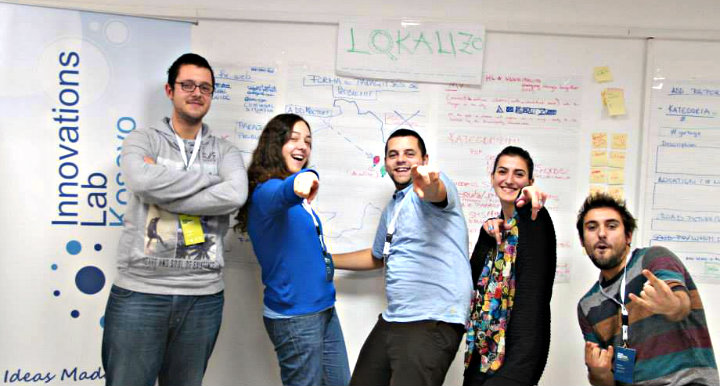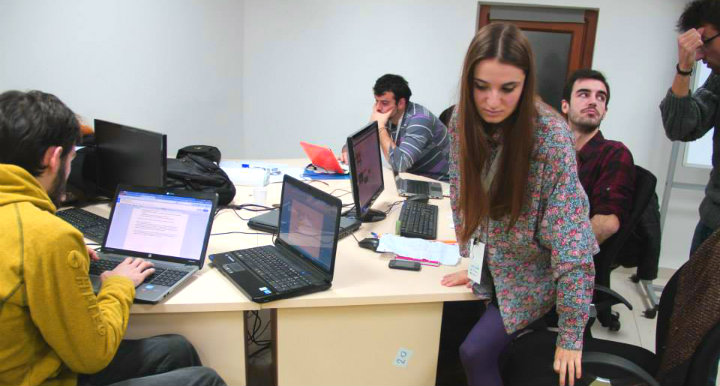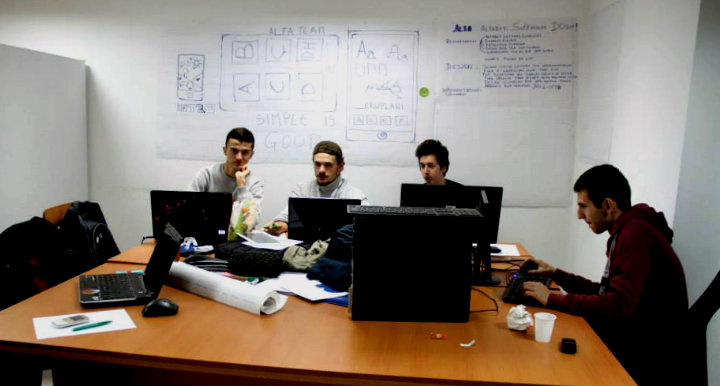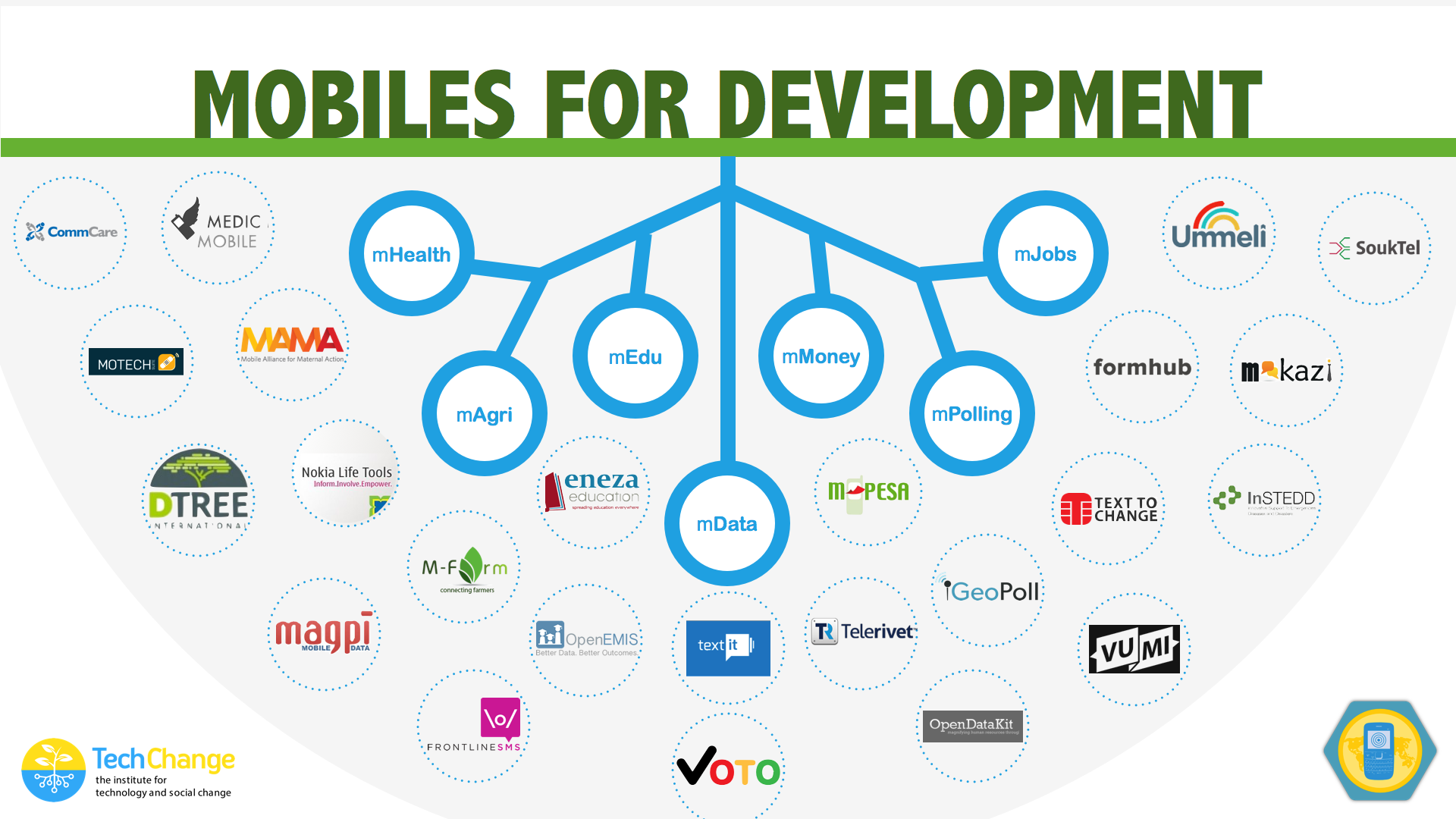Earlier this week, Georgetown University announced the launch of its brand new Beeck Center for Social Impact & Innovation.
This 10-million dollar center funded by Georgetown alumni, Alberto and Olga María Beeck, aims to inspire and prepare students, faculty, and global leaders with the necessary skills to generate and innovate solution-based world change. The Beeck Center actively promotes a policy-relevant, cross-disciplinary approach to research, ideas, and action. The Center’s approach hopes to challenge common assumptions and lead to ideas and actions that are creative, adaptive, and morally grounded. Planned initiatives include: workshops, speaker event series, social innovation fund, fellows program, social impact lab, and research and policy initiatives.
At the center’s opening event on February 11, the Beeck Center welcomed leading experts in the Social Innovation space such as Pam Omidyar (Co-Founder, Omidyar Network and Founder, HopeLab), Jean Case (Co-Founder and CEO, Case Foundation), and other leading experts on design and storytelling for advocacy. The reception’s closing remarks were by the Center’s Executive Director, Sonal Shah, whose brings leadership from her wealth of experiences at the White House Office of Social Innovation and Civic Participation, Google.org, Goldman Sachs, the Center for Global Development, the U.S. Department of Treasury, and other organizations.
We had the chance to talk to some of the students already involved with the Beeck Center from across Georgetown University who shared their work in social innovation across the world, from the GU Impacts Fellowship program to the SIPS Fund.
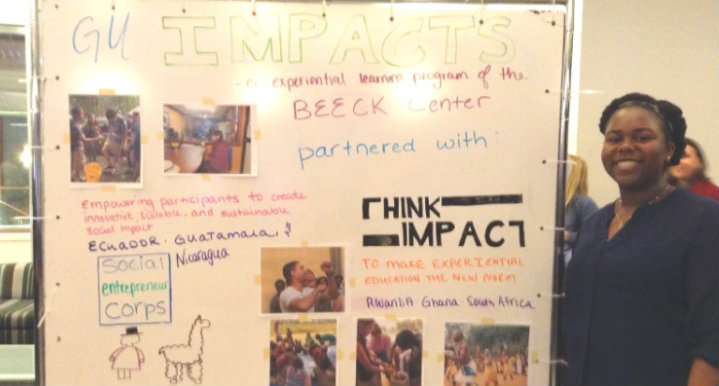 A Georgetown student shares her stories from her GU Impacts program field experience in South Africa.
A Georgetown student shares her stories from her GU Impacts program field experience in South Africa.
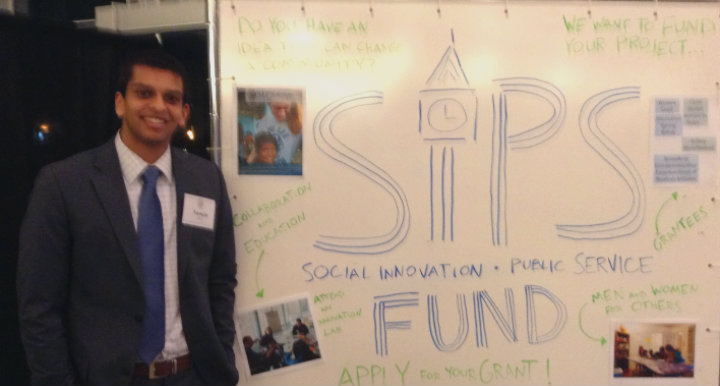 Georgetown sophomore, Naman Trivedi, discusses projects that have been funded through the student-run Social Innovation Public Service (SIPS) Fund; the Fund has given out grants ranging from $300 to $13,000 for projects here in DC and as far away as Nepal.
Georgetown sophomore, Naman Trivedi, discusses projects that have been funded through the student-run Social Innovation Public Service (SIPS) Fund; the Fund has given out grants ranging from $300 to $13,000 for projects here in DC and as far away as Nepal.
If you missed the Beeck Center’s launch event, you can check out the recorded webcast here.
Social innovation can come from anywhere, whether it is from individuals dedicated to public service, social entrepreneurs, or social intrapreneurs working at companies, multilateral organizations, non-profits, or government agencies. We can’t wait the see the impact on the world coming from institutions such as the Beeck Center and are very excited for this welcome addition to the social innovation community.
According to Mark Hanis, Director of the Beeck Center,
“We’re delighted to be working with TechChange, who is a prime example of the type of B Corps social enterprises that we want to foster at the Beeck Center. Like TechChange, Georgetown has always leveraged technology for social change, and Georgetown students are eager to pursue careers that involve a double bottom line business model like TechChange’s. Part of Beeck’s unconventional approach will be grounded in social intrapreneurship as an important component of the social change ecosystem because we often work with larger entities like government, NGOs, and multinational corporations. Ultimately, intrapreneurship is about teaching people how to be more effective in inspiring positive change.”
To help welcome members of Beeck Center community, we’re offering a $100 discount to Beeck affiliated organizations and individuals to join our upcoming Social Intrapreneurship course, which begins in on February 24! Use coupon code: DriveImpact before February 21 to get $100 off the course!

